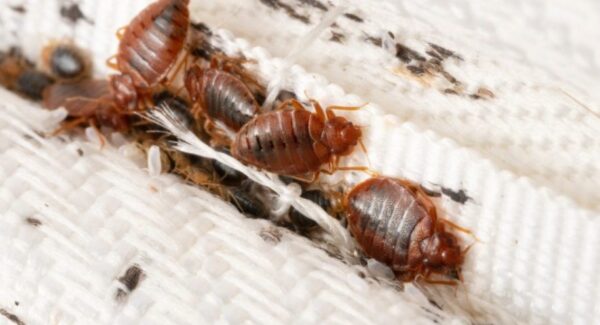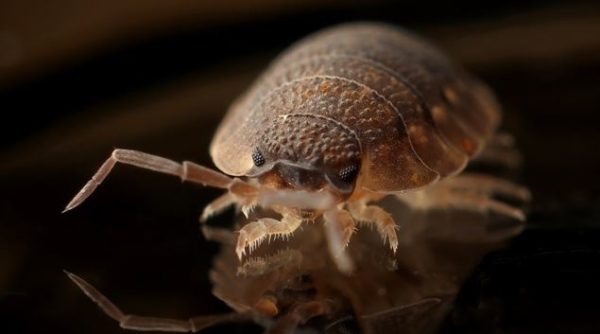
Bed bugs are tiny, reddish-brown, wingless insects that feed exclusively on blood, preferably human blood.
Despite their size, these pests are notorious for the havoc they cause in homes and hotels.
Bed bugs are nocturnal; they come out mostly at night to feed on unsuspecting sleeping humans, then retreat into cracks, seams, and hidden corners before dawn.
While they aren’t known to spread disease, bed bug bites can cause itchy welts, allergic reactions, and, for many, emotional distress due to disrupted sleep and anxiety.
An infestation can be stubborn, and its resilience makes it difficult to eliminate without thorough effort.)
Bed bugs operate by sensing body heat, carbon dioxide, and human skin odours. Once they detect these signals, they crawl out from their hiding places, usually within 5 to 20 feet of a sleeping host, and feed for about 5 to 10 minutes. After feeding, they return to their hiding spots to digest and lie low until their next meal.
They don’t fly or jump, but they move quickly over floors, walls, and ceilings. These pests are experts at hiding and can easily stow away in luggage, clothing, used furniture, and even electrical outlets.
Food crumbs, dirt, or filth do not attract bed bugs. Instead, what draws them to humans includes:
- Body heat: Humans produce warmth, especially when sleeping. Bed bugs are highly sensitive to this and can detect it from several feet away.
- Carbon dioxide (CO₂): When we breathe, we release carbon dioxide, a key trigger for bed bugs to begin their search for a meal.
- Natural body odour: The scent of human skin, sweat, and breath also lures them.
- Stillness: Bed bugs prefer feeding on people who are inactive for long periods, such as while sleeping.
Contrary to myths, bed bugs aren’t picky; they’ll infest even the cleanest homes if they find their way in.
Because they thrive near their food source (humans), bed bugs typically hide in and around sleeping areas, such as:
- Mattresses and box springs
- Bed frames and headboards
- Bedding and pillows
- Clothing and luggage
- Inside furniture seams and upholstery
- Cracks in walls, ceiling-wall junctions, and baseboards
- Behind wallpaper, wall hangings, and electrical outlets
- Curtain rods and pleated curtains
- Inside personal belongings like books, photo frames, toys
The first noticeable clue is usually itchy bites, especially on areas exposed during sleep. But not everyone reacts the same way, some people don’t react at all. Other signs to look out for include:
- Faecal spots: Small dark stains on sheets or walls
- Moulted skins: Light brown, shell-like casings
- Blood stains on bedding
- Musty odour: A sweet, unpleasant smell in severe infestations
Yes, but it takes effort and consistency. Here are effective options:
Heat is one of the most effective ways to kill bed bugs at all life stages.
- 113°F (45°C) for 90 minutes kills adult bugs.
- 118°F (48°C) for 90 minutes ensures that even the eggs die.
Tools for heat treatment include steam cleaners for mattresses, carpets, and upholstery, hot dryers for infested clothes and professional heat chambers for furniture or entire rooms. Note: While effective, heat treatments don’t offer residual protection, meaning re-infestation can occur if not monitored.
While not as powerful as chemical treatments, certain essential oils repel bed bugs:
- Lemongrass oil: The citrus scent disrupts their sensory receptors.
- Cedarwood oil: Affects bed bugs’ pheromones and repels them.
- Lavender and tea tree oil: Sometimes used as contact sprays.
Always dilute essential oils before applying and focus on seams, cracks, and corners.
Although not drawn to specific fragrances, some smells may help repel them:
- Lemongrass
- Cedarwood
- Lavender
- Peppermint
- Clove
These smells won’t kill bed bugs, but may discourage them from lingering in treated areas.
Bed bugs are world-class hitchhikers. They can move from place to place by clinging to:
- Luggage
- Secondhand furniture
- Clothing
- Cardboard boxes
- Shared laundry machines
They can also move between apartments, hotel rooms, and houses through wall crevices, pipes, and shared ventilation systems.
Bed bugs don’t care if your home is spotless or cluttered. However, clutter does give them more places to hide, making treatment more difficult. Clean homes are not immune; even luxury hotels have had bed bug issues. )
- Inspect secondhand furniture and luggage before bringing them home.
- Use protective mattress encasements.
- Reduce clutter to limit hiding spots.
- Vacuum frequently, especially around the bed and headboards.
- Seal cracks and crevices in walls and floors.
- Be cautious when travelling, inspect hotel rooms and keep luggage on the floor, not on the bed.
While their bites aren’t dangerous, the psychological and physical discomfort they cause is reason enough to take them seriously. Early detection, consistent heat treatments, and strategic use of repellents like essential oils can help manage infestations. When in doubt, professional pest control is the best route.

![]()
)










